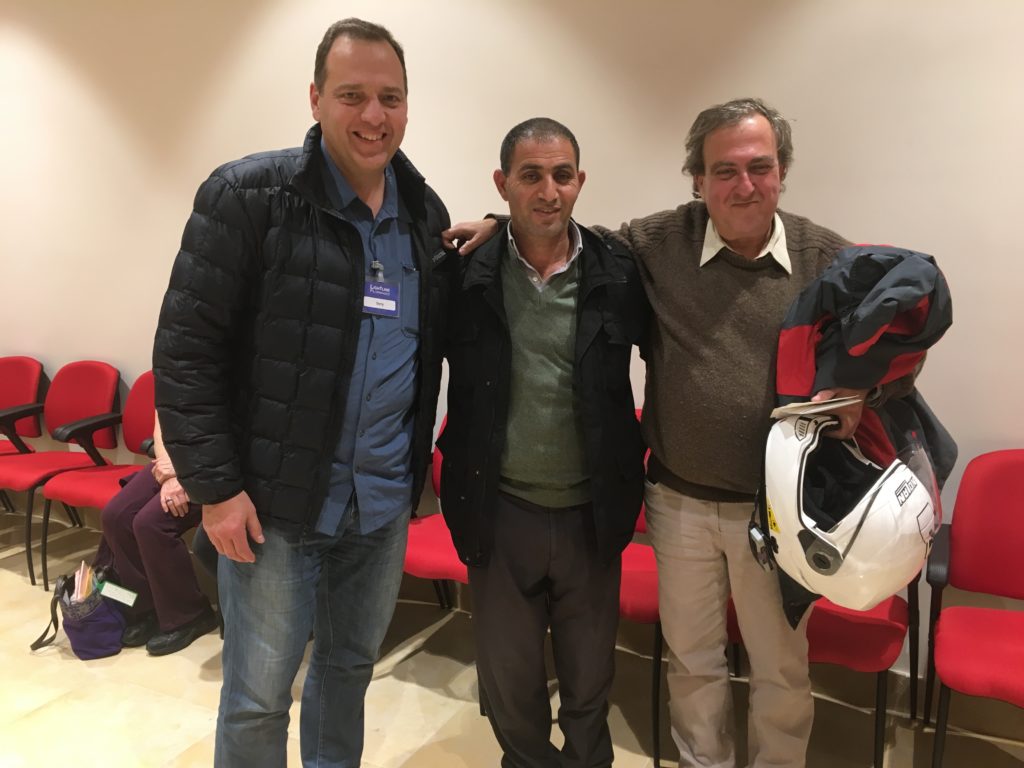
In 2017 I was fortunate enough to go to Israel/Palestine. One of the highlights for me was listening to the stories of Israelis and Palestinian parents who had buried their children as the result of violence. The Parent’s Circle is an organization that helps people to recognize each other as human beings, having compassion for each other in their mutual loss.
There are lots of organizations working to bring people together. The Interfaith Encounter is a group that gathers people on the basis of interfaith respect. At the Parliament of the World’s Religions I spent an evening with the people of the Abrahamic Reunion. They don’t want to merge these traditions, but rather for them to recognize commonalities and work for the common good.
As we work to for justice and peace in the United States and across the world, here are some additional things to keep in mind:
- Honor Everyone’s Value: When we are seeking to ally with one group whose human rights are being ignored or broken, remember the human rights of all in the situation. Peace will ultimately only be won when all have what they need and when everyone’s rights are honored. It is equally important to stand up against Antisemitism as it is anti-Muslim bigotry or anti-Asian bigotry, and every bigotry!
- The World is Complex: Social media is amplifying what human beings can sometimes tend to do: deny the complexity of the challenges we face. It is possible to stand with our Jewish neighbors in the US, the well-being of all those in Israel/Palestine and have concerns about the policies of the State of Israel. In fact, many Jewish people join you in those concerns. It is possible to stand with our Muslim neighbors in the US, the well-being of all those in Israel/Palestine and be concerned about the actions of Hamas or Iran. In fact, many Muslims join you in those concerns. The same is true for all the other issues and the communities they impact in our world.
- Evaluate the Scope of Your Concerns: It is natural for us to get focused on one or two issues in the world. That is okay. But it is also important for us to evaluate why we are focused on the issues we care about. Sometimes our focus can be the result of racism or collective blame. For instance, many Christians focus a lot on Israel/Palestine in part because they read the Hebrew Scripture or because Israel is a focus of their theology. This can instrumentalize both the Jewish and Palestinian communities in a way that denies their full humanity and value.
- Resist Purity Tests: We never agree with each other 100% of the time. Try to be curious about how other people see the issue instead of reacting with fear or anger at the first sign of difference. We cannot hold together if we see people as impure if they do not agree with us.
- Advocate for Positive Change: Just because these are complex situations doesn’t mean that there are not policy changes you can advocate for. Do it! Just try to be humble as you do that advocacy and stay open to learning more as you go.
- Tell or Share a Positive Story: When people of color or religious traditions are only associated with violence or conflict, it increases the likelihood of violence here. Find and share stories about how, in this case, Israelis and Palestinians are working together for peace. Such love in a time of fear can often change hearts as much as what is wrong. Because our attention is easily captured by fear, the media can often share only negative stories. Share positive stories, like those on Challenge 2.0 with Jeff Renner.
Lastly, cultivate hope. Things can get better when we all work for our common good, and strive to be respectful of one another as we do that work.
Image: Terry with members of the Parent’s Circle in Jerusalem
